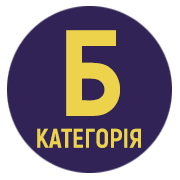ASSESSMENT OF THE IMPACT OF DISTANCE EDUCATION ON THE PROCESS OF TRAINING FUTURE CHOREOGRAPHERS: STUDY OF MODERN STRATEGIES AND METHODS
Abstract
Nowadays, distance education has become an integral part of the training of future specialists in any field, including art. This is due to its flexibility, accessibility for all participants of the educational process, use of various technologies and innovative methods. However, despite numerous positive aspects, the training of choreographic art specialists using innovative forms of education requires careful research and study. The purpose of the article was to analyze the influence of distance learning on the training of future choreographers. Educational institutions actively implement various innovations in the process of training future choreographers, which include methodical principles, forms of teaching and learning. Methodical principles of training future choreographers are outlined. It was determined that distance education is one of the main innovations in the education system. The main forms of organizing classes for future choreographers during distance learning are characterized – video conferences, audio conferences, free learning and self-education. The use of video lessons, webinars and interactive platforms is widespread, which facilitates the availability of educational material. Conducting master classes is also an effective method of training future choreographers, and in the context of distance learning, this approach can be adapted using video conferencing platforms. At the same time, these learning methods require students to be more independent and able to manage their learning. The distance form of education significantly affects the process of training future choreographers, changing the way of perceiving and studying the material and requiring greater self-discipline and organization. On the one hand, distance learning can give future choreographers access at any time to a large number of information resources, webinars, and interactive platforms. On the other hand, it limits physical practice and interaction between the participants of the educational process. Therefore, the effectiveness of distance learning in the training of choreographers depends on the balance between innovative teaching methods and traditional ones, as well as on the individual characteristics of the students.
References
Єфімова О.В., Барабаш О.В., Подкопай Є.Ю., Сидоренко В.А. (2023). Проблеми вивчення хореографічних дисциплін в умовах дистанційного навчання. Витоки педагогічної майстерності, (32), 124–127. https://doi.org/10.33989/2075-146x.2023.32.292654.
Зінченко В., Квітко Н., Михайлова Л. (2024). Специфіка й особливості організації дистанційного навчання в умовах воєнного стану: виклики та стратегії подолання. Перспективи та інновації науки, (1(35)), 153–165. http://perspectives.pp.ua/index.php/pis/article/download/8598/8644.
Козачук О., Косаковська Л. (2022). Підготовка сучасного педагога-хореографа: теоретичні аспекти. Педагогічні науки: теорія, історія, інноваційні технології, (3(117)), 219–226. https://evnuir.vnu.edu.ua/handle/123456789/21471.
Кундис Р.Ю., Лавриненко С.О., Никорович І.Ю., Машталер І.І., Тіщенко О.М. (2023). Викладання хореографії у вищій школі в умовах сьогодення. Вісник науки та освіти, (4(10)), 885–897. https://doi.org/10.52058/2786-6165-2023-4(10)-885-897.
Манелюк Е.В. (2023). Викладання хореографічних дисциплін в закладах вищої освіти в умовах сьогодення. Академічні візії, (15). https://www.academy-vision.org/index.php/av/article/view/117.
Мартинів О.О. (2024). Особливості сучасної професійної хореографічної освіти. Період трансформаційних процесів в світовій науці: задачі та виклики (с. 538–539). Вінниця: УКРЛОГОС Груп. https://sci.ldubgd.edu.ua/jspui/bitstream/123456789/13194/1/50-72-PB.pdf#page=539.
Мерлянова О. (2021). Роль дистанційного навчання в системі підготовки хореографів. Збірник наукових праць Уманського державного педагогічного університету, (1), 183–188. https://doi.org/10.31499/2307-4906.1.2021.228839.
Олексюк О., Теряєва Л., Теряєв В. (2023). Особливості організації освітнього процесу в умовах дистанційного навчання. Освітологічний дискурс, (1(40)), 40–58. https://doi.org/10.28925/2312-5829.2023.13.
Паньків Л. (2023). Особливості використання сучасних інформаційних технологій у процесі підготовки майбутніх учителів музичного мистецтва та хореографії. Вісник Національного університету «Чернігівський колегіум» імені Т.Г. Шевченка, 175(19), 14–18. https://doi.org/10.58407/231903.





